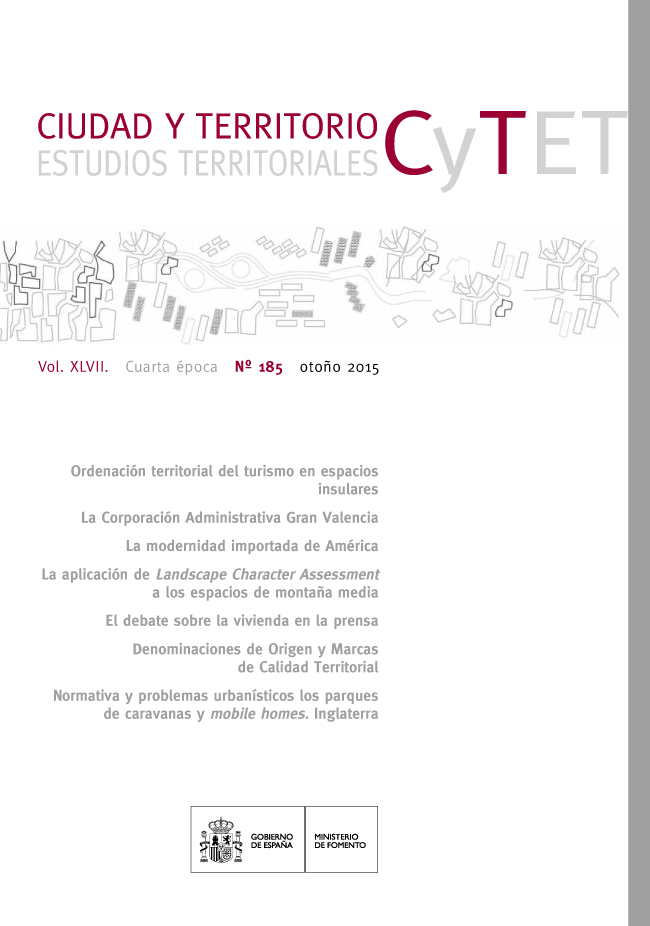Designations of Origin and Territorial Quality Marks: The cases of Méntrida, Mondéjar and Uclés in Castile-La Mancha (Spain)
Keywords:
Designations of Origin. European Territorial Quality Marks. Rural Territorial Development. Social Network Analysis. Castile-La Mancha (Spain)Abstract
In the European context, quality concepts such as ‘Designations of Origin’ (DOs) are
usually related to Rural Territorial Development (RTD) processes. Although RTD is not the purpose
of DOs, its inclusion in European rural-development policies shows their potential for fostering
dynamics of this type. In addition, Territorial Quality Marks are quality concepts that were set up
for the specific purpose of generating RTD processes, emerging from practical experiences of
processes of this type. This paper explores the approach between these two concepts, seeking, by
studying three wine-making Designations of Origin in the Castile-La Mancha region, to understand
the parts of a DO that may lead to fostering RTD processes. By examining surveys and interviews
with local agents, and through Social Networks Analysis (ARS), each DO studied (Méntrida,
Mondéjar and Uclés) reveals different types of behaviour, showing which DOs are closer or farther
removed from the idea of MCT, and therefore RTD.
Downloads
Downloads
Published
How to Cite
Issue
Section
License
Copyright (c) 2015 Silvia Freitas Caetano, Obdulia Monteserín Abella, Consuelo Del Canto Fresno

This work is licensed under a Creative Commons Attribution-NonCommercial-NoDerivatives 4.0 International License.
Considering the provisions of the current legislation on Intellectual Property, and in accordance with them, all authors publishing in CyTET give -in a non-exclusive way and without time limit- to the Ministry of Transport, Mobility and Urban Agenda the rights to disseminate, reproduce, communicate and distribute in any current or future format, on paper or electronic, the original or derived version of their work under a Creative Commons Attribution-NonCommercial-NoDerivative 4.0 license International (CC BY-NC-ND 4.0), as well as to include or assign to third parties the inclusion of its content in national and international indexes, repositories and databases, with reference and recognition in any case of its authorship.
In addition, when sending the work, the author(s) declares that it is an original work in which the sources that have been used are recognized, committing to respect the scientific evidence, to no longer modify the original data and to verify or refute its hypothesis. Author(s) also declare that the essential content of the work has not been previously published nor will it be published in any other publication while it is under evaluation by CyTET; and that it has not been simultaneously sent to another journal.
Authors must sign a Transfer of Rights Form, which will be sent to them from the CyTET Secretariat once the article is accepted for publication.
With the aim of promoting the dissemination of knowledge, CyTET joins the Open Journal Access (OA) movement and delivers all of its content to various national and international indexes, repositories and databases under this protocol; therefore, the submission of a work to be published in the journal presupposes the explicit acceptance by the author of this distribution method.
Authors are encouraged to reproduce and host their work published in CyTET in institutional repositories, web pages, etc. with the intention of contributing to the improvement of the transfer of knowledge and the citation of said works.








 Enlace a CyTET en Linkedin
Enlace a CyTET en Linkedin